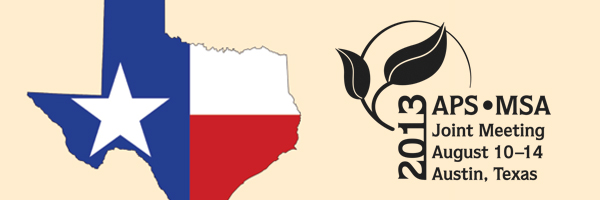APS Homepage
Back

Poster Session: Biochemistry and Cell Biology of Pathogenesis
© 2013 by The American
Phytopathological Society. All rights reserved.
632-P
Interspecific hybrids between Fusarium fujikuroi and Fusarium proliferatum.
N. M. I. MOHAMED NOR (1), B. Salleh (2), C. P. Toomajian (1), J. P. Stack (1), J. F. Leslie (1)
(1) Kansas State University, Manhattan, KS, U.S.A.; (2) Universiti Sains Malaysia, Penang, Malaysia
Interspecific hybrids offer unusual opportunities to study speciation and the segregation of traits that differ between species but that are often fixed within a species. We have recovered strains that appear to be hybrids between F. fujikuroi and F. proliferatum from rice fields in Southeast Asia and from a native tallgrass prairie in the United States. These hybrids can cross with standard mating type testers of both species and have DNA sequence profiles that are consistent with their putative hybrid conditions. The existence of these hybrids may indicate that reticulate evolution is occurring or that these two species have yet to completely finish the speciation process. We also have created such hybrids under laboratory conditions by crossing strains of opposite mating type on carrot agar. Based on the segregation of AFLPs, there are some fingerprint patterns that reoccur independently multiple times amongst the progeny, suggesting non-random segregation of at least portions of the genome. The parental strains differ in numerous traits, including secondary metabolite production and pathogenicity towards apples, onions and rice. Evaluation of recombinant progeny is providing the opportunity to identify portions of the genome involved in the speciation process and to identify regulatory and structural genes of importance in pathogenicity and secondary metabolite production.